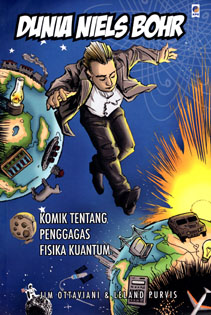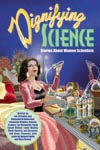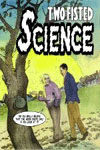Tim O’Shea interviewed me for the swell Robot 6 sector of Comic Book Resources, and you can find it here. I tried not to say the same things about the same things, as a rival philosopher once accused Socrates of doing. But I’m no Socrates, so maybe I did. At the end you’ll find out more about what I should be writing instead of this blog post, though…
g.t. labs
The Imitation Game
That’s the name of the serialized story I’m doing for Tor.com, and I’m taking a break from writing it to note that the sequence that I thought would be impossible in the first act came together in one night* last week, so this next bit, which I think will be easy, will probably be difficult. I’ve come to expect that I’m wrong about stories I’m writing a lot more often than I’m right.
But in tonight’s batch of pages Turing enters Bletchley Park, and everybody is glad to see him there, myself included.
[*a night that ended late, and with a smile, and with a splitting headache]
Jim Ottaviani at SPX, September 26-27 in Bethesda, MD
This will be my 12th time exhibiting at the Small Press Expo, and I’m as excited about it as ever. With a guest list that includes Gahan Wilson, Carol Tyler, Joshua Cotter, Paul Karasik, and Josh Neufeld, you won’t want to miss it.
I’ll have the last few hardcovers of T-Minus, a few of the limited edition Charles R. Knight hardcovers as well, the new editions of Two-Fisted Science and Dignifying Science, and more science graphic novels than I can now comfortably fit on a table.
What I won’t have is all the time in the world on Saturday — I’m likely only available at the show for the first and last hour that day. This is not bad news. More when the details are pinned down, but for now I’ll leave it at this. As much as I’m always in the shadow of greatness at SPX, this raises that metaphor to new heights.
See you there.
Dunia Niels Bohr and Un Pensiero Abbagliante
 As a comics writer, with every new book I get the pleasure of rediscovering a story through the eyes and skilled hands of artists. I don’t think I’ll ever get used to the thrill of seeing a script come to life in ways that I’d imagined…and even better, in ways that I didn’t imagine.
As a comics writer, with every new book I get the pleasure of rediscovering a story through the eyes and skilled hands of artists. I don’t think I’ll ever get used to the thrill of seeing a script come to life in ways that I’d imagined…and even better, in ways that I didn’t imagine.
A new thrill has come my way in the past couple of years — editions in other languages, for non-U.S. audiences. So far, only Suspended in Language has made it overseas, but a couple more will appear in the coming years. I can’t read ’em, but I sure do like looking at ’em! So over to the right you see the cover of the Indonesian edition, copies of which just arrived in the mail today, and here’s the machine-translated ad copy for the Italian edition, courtesy of Sironi Editore:
More or less all you have felt to speak, to the times of the school, the atom of Bohr. But you knew it that, during the war, its inventor risked the life traversando the Sleeve hidden in the space bombs to an airplane? Reading this comic strip you will understand that the life of a theoretical physicist can be much enlivened, above all if that physicist is Niels Bohr: not only the father of the quantistica mechanics, but one between the more important figures of XX the century. You will discover, as an example, that it helped Firm to scappare from Italy, than as well as the nazis how much the Soviet ones wanted rapirlo, that Churchill considered it the more dangerous man in the group that she constructed the atomic bomb. You will see to battle with those cocciuto of Einstein, to taken with that impertinente of Heisenberg and that maleducato one of Pauli… You will have the vertigos – because it cannot be spoken about quantistica mechanics without to have them – but you will make also a bag of risate: after all, the “spirit of Copenaghen” was also this. Final designs of Jay Hosler, Steve Leialoha, Linda Medley and Jeff Parker. Jim Ottaviani has felt to name Bohr for before the time when it studied in order to become engineer nuclear. Now ago the librarian in a university and when the others sleep, writes. He is author of many comic strips with scientists like protagonists. A dazzling thought is the first one translate in Italian. Leland Purvis, graduated in History, is a narrator and an artist self-taught. It has begun publishing in just the story anthology to Vòx comic strips, for which the Xeric has won Grant. The history to comic strips of its Pubo personage have been ripubblicate recently like series from Dark Horse Comics.
“[W]hen the others sleep, writes.” I like it.
And I also like trailers!
Two-Fisted Science and Dignifying Science going back to press


Two-Fisted Science and Dignifying Science are close to being sold out in their original, comic book-sized editions. I will reconfigure them to a more…or less, depending on your perspective…conventional trim size of 6×9 in. (15×23 cm) for reprinting this spring, so if you really love the book in the 7×10 in. format, now would be a great time to order them.
(Suspended in Language will probably go back to press at about the same time.)
I’m grateful to all the readers who have made their success possible. Thanks!
Why comics about scientists?
 Calculus. Most people who end up like me — nuclear engineer
Calculus. Most people who end up like me — nuclear engineer
turned librarian turned comics writer — took it in high school. I didn’t,
though not by choice. I don’t remember it being offered, for one thing, and I wouldn’t have been ready for it if it had been available to me, but entering college behind
the curve turned out great
I didn’t think so at the time. Every other first
year engineering student was ahead of me and doing well and having a social life while I was struggling
to wrap my mind around limits and integrals, and doing so while additionally being
bored by the classical physics we all had to suffer through. Let me at the cool
quantum stuff so I can finally lick this teleportation thing once and for all!
In the end, I actually looked forward to the homework.
Learning stuff is fun; who knew? High school hadn’t prepared me well for that, either. But by the time finals crashed the party I
still didn’t know whether I understood enough to make the cut. And when I sat
down to the physics exam I was sure I was done for. In later classes you got to
bring in a sheet of notes, on the (justified) premise that having them wouldn’t
do you much good. But not so for that first, basic class. I showed up with my
brain, a pencil, and a calculator that could do square roots(!) and trig
functions(!) and delivered the answer in glowing red LEDs.
And I also showed up with an urge to cower, made more acute
when I promptly forgot all the equations of motion and how to calculate energy
and momentum. Completely blanked. All I could dredge up from memory were force
= mass x acceleration and distance = rate x time. Cutting edge stuff…if you’re
Isaac Newton in 1687.
But, it turns out, I could also dredge up calculus. Also
cutting edge Newtonian tech, but if you know the force and distance equations
and you know calculus you can derive everything else you need for a first
course in classical physics. Especially if you vaguely remember enough of what
the results look like to recognize the formulae when you’re done. And on the
fly, under pressure, I derived ’em.
Even if I’d flunked out then and there I think this
experience alone would have made college worthwhile. It’s certainly one of the
few moments I remember from a whole lot more higher education than I like to
admit to.
Oh yeah, comics.
I
can’t replicate that revelatory physics experience any more, at least in
context — those mathematical tools have long since rusted away in the damp
back corners of my brain. But I can replicate the panic: I still get
it every time I sit down to make a new book, because I arrive at each project
with my brain, pencil and paper (or rather, their modern analogue, a keyboard
and a blinking cursor), and no clue as to how to solve the problem of writing a
comics script. But what I can always dredge up is that fundamental image or idea that
got me excited about doing the book in the first place, and that eventually becomes words and
those words describe dialogue and panels and pages and spreads and scenes. And
all of a sudden (well, actually many months later, and thanks to heavy lifting
by an artist) there it is, a new world, fresh for me to marvel at and enjoy as
if I were discovering how gravity works, a
la Isaac Newton.
Who I really ought to write a comic on, someday. But the next physicist you’ll see me write about is Richard Feynman. First Second (for whom I wrote the first verson of this, my first ever blog post) has me doing Richard Feynman’s cool quantum stuff first, though. And they’re letting me bring my notes.

